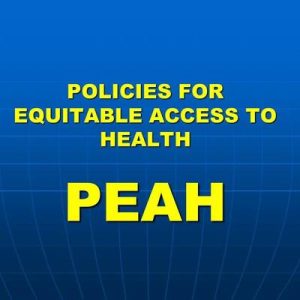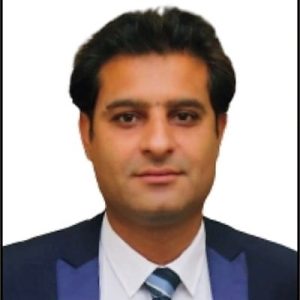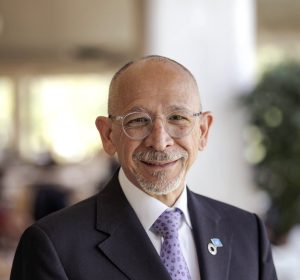IN A NUTSHELL
Author's note
 This paper addresses the challenges faced in reaching Gray House children, residing in underserved areas such as urban slums and remote villages, during crucial vaccination campaigns. It discusses factors like vaccine hesitancy, logistical hurdles, and resistance to mandatory vaccination, proposing tailored communication strategies involving community engagement, influencer collaboration, and misinformation mitigation. Additionally, it emphasizes the significance of building trust, countering misinformation, and engaging diverse stakeholders to advance polio eradication efforts. The paper outlines strategies for effective communication, combating fake vaccination practices, and leveraging female influencers, providing a comprehensive framework for successful vaccination campaigns. It also presents a content framework, budget allocation strategy, and outreach plan, emphasizing adaptability and continuous improvement. Furthermore, the paper underscores the importance of evaluating campaign effectiveness and adjusting strategies accordingly to enhance vaccine uptake and accelerate progress towards polio eradication, promoting inclusivity, collaboration, and impact measurement
This paper addresses the challenges faced in reaching Gray House children, residing in underserved areas such as urban slums and remote villages, during crucial vaccination campaigns. It discusses factors like vaccine hesitancy, logistical hurdles, and resistance to mandatory vaccination, proposing tailored communication strategies involving community engagement, influencer collaboration, and misinformation mitigation. Additionally, it emphasizes the significance of building trust, countering misinformation, and engaging diverse stakeholders to advance polio eradication efforts. The paper outlines strategies for effective communication, combating fake vaccination practices, and leveraging female influencers, providing a comprehensive framework for successful vaccination campaigns. It also presents a content framework, budget allocation strategy, and outreach plan, emphasizing adaptability and continuous improvement. Furthermore, the paper underscores the importance of evaluating campaign effectiveness and adjusting strategies accordingly to enhance vaccine uptake and accelerate progress towards polio eradication, promoting inclusivity, collaboration, and impact measurement

By Muhammad Noman
Healthcare System, CHIP Training and Consulting
Quetta, Balochistan Pakistan
Empowering Gray House Communities Towards Vaccination Efforts
Navigating Fake Vaccination, Mobilizing Influencers, and Cultivating Trust
Introduction
In the pursuit of global health equity, Gray House children, residing in marginalized urban areas and remote villages, often face significant barriers to accessing vital healthcare services, including vaccinations against diseases like polio. Despite concerted efforts to eradicate polio, these children remain disproportionately affected due to socioeconomic factors and logistical challenges. Understanding the complex interplay of these factors is essential for designing targeted communication strategies to ensure that no child is left behind in the fight against polio. This paper explores the challenges faced in urban communities, the logistical hurdles of mobility, and the imperative for tailored communication strategies to effectively reach Gray House children. Additionally, it delves into the resistance to mandatory vaccination, the role of community leaders in dispelling misconceptions, and the necessity of countering fake vaccination practices. Through collaborative efforts and innovative communication approaches, stakeholders can move closer to the goal of polio eradication while safeguarding the health and well-being of vulnerable populations.
Understanding Gray House Children
Gray House children, residing in areas with limited healthcare access like urban slums and remote villages, are often overlooked in vaccination campaigns. Designing targeted communication strategies to reach them requires an understanding of the socioeconomic factors contributing to their invisibility.
Challenges in Urban Communities
Urban areas face a lack of awareness about polio vaccination importance, exacerbated by misinformation and rumours. This contributes to vaccine hesitancy, making it challenging to achieve high vaccination coverage.
Logistical Challenges of Mobility
The transient nature of urban populations poses logistical challenges for vaccination teams, resulting in missed opportunities for vaccination and gaps in coverage, especially among marginalized populations.
Tailored Communication Strategies
Engaging community leaders and utilizing mobile health clinics can facilitate dialogue and improve access to vaccination services in urban areas. Tailored communication strategies are crucial to ensuring that no child is left behind in the fight against polio.
Resistance to Mandatory Vaccination
Administrative pressure to administer polio doses sometimes leads to resistance among families in cities. Improved communication and trust-building efforts are necessary to address this reluctance and encourage participation in vaccination campaigns.
Engaging Community Leaders
Engaging with community leaders, religious figures, and influencers is vital to dispel misconceptions and build confidence in vaccination campaigns, ultimately encouraging families to participate willingly in immunization efforts.
Communication Challenges
Various obstacles hinder efforts to reach Gray House children and tackle fake vaccination concerns. These obstacles encompass language barriers, low literacy rates, and distrust in healthcare authorities, compounded by misinformation disseminated through social media and community networks. Cultural and religious beliefs also contribute to vaccine hesitancy, adding layers of complexity to communication endeavours.
Customized Communication Strategies
Effective engagement with Gray House children and the mitigation of fake vaccination concerns necessitate customized communication strategies. These strategies should address language barriers by utilizing multilingual materials and interpreters. Moreover, initiatives to enhance health literacy within communities, particularly in urban slums and remote areas, are imperative.
Building Trust and Countering Misinformation
Establishing trust in healthcare authorities through transparent and respectful communication is paramount. Simultaneously, countering misinformation with accurate and credible information is essential. Engaging religious leaders and community influencers to advocate for vaccination from a culturally sensitive perspective can help address underlying cultural and religious beliefs.
Moving Towards Polio Eradication
By addressing these communication challenges head-on, stakeholders can bolster vaccination uptake and advance toward the ultimate goal of polio eradication. Efforts to bridge communication gaps and foster trust within marginalized communities are integral to achieving success in immunization campaigns and safeguarding public health.
Strategies for Effective Communication
Effective communication strategies are essential for engaging with Gray House children and combating fake vaccination practices. These strategies should be culturally sensitive, community-driven, and inclusive of diverse stakeholders, including religious leaders, community influencers, and healthcare workers. Leveraging interpersonal communication, door-to-door outreach, and community mobilization efforts can help build trust and rapport with marginalized communities.
Engaging Community Influencers
Community influencers, including religious leaders, community elders, and local celebrities, wield significant influence in shaping public opinion and behavior, particularly concerning vaccination. Collaborating with these influencers can amplify pro-vaccination messages and combat misinformation within communities. Religious leaders, in particular, can leverage their authority to promote vaccination from a religious standpoint, addressing misconceptions and fostering vaccine acceptance among their followers. By involving a diverse array of influencers, stakeholders can effectively reach and mobilize communities to prioritize routine immunization, thereby advancing public health goals.
Healthcare Professionals as Influencers
Furthermore, healthcare professionals, such as child specialists, gynaecologists, and Lady Health Visitors (LHVs), serve as influential figures in promoting routine immunization. During check-ups, child specialists can educate families about the importance of vaccinations, addressing any concerns and emphasizing the health benefits for children. Similarly, gynaecologists and LHVs play crucial roles in educating pregnant women about vaccinations, including the Tetanus Toxoid (TT) injection and routine immunizations for their unborn child’s health. Leveraging the expertise and credibility of healthcare professionals as influencers can enhance awareness and uptake of vaccinations within communities.
Combatting Fake Vaccination Practices
Fake vaccination practices pose a grave threat to public health and undermine the integrity of polio eradication efforts. These practices encompass various deceitful tactics, such as falsifying vaccination records, distributing counterfeit vaccines, and coercing parents into refusing vaccination for their children. Addressing this issue demands a multifaceted approach that encompasses several key strategies.
Firstly, there is a pressing need to strengthen regulatory oversight to prevent the proliferation of fake vaccination schemes. This involves implementing stringent regulations and monitoring mechanisms to ensure the authenticity and safety of vaccines administered during vaccination campaigns.
Secondly, enhancing surveillance systems is paramount in detecting and responding to instances of fake vaccination promptly. Robust surveillance mechanisms can help identify areas or communities vulnerable to fake vaccination practices, allowing for targeted interventions and resource allocation.
Furthermore, promoting transparency and accountability within vaccination campaigns is essential for building public trust and confidence. Transparency in vaccine procurement, distribution, and administration processes can help dispel doubts and rumors surrounding vaccination efforts, while accountability mechanisms hold stakeholders accountable for their actions.
By implementing these strategies in tandem, stakeholders can effectively combat fake vaccination practices and safeguard the integrity of polio eradication initiatives, thereby ensuring the health and well-being of communities at risk.
Content Framework
Craft compelling messages emphasizing the importance of polio vaccination, addressing common misconceptions, and highlighting the benefits of immunization.
Budget Allocation
Allocate resources for influencer collaborations, content creation, and campaign monitoring, ensuring cost-effectiveness and maximum reach.
Identifying Influencers
Identifying influential figures within the community is crucial for effectively communicating vaccination messages and combating misinformation. Religious leaders, local celebrities, healthcare professionals, and community organizers are among the key influencers who can play a significant role in promoting vaccination. These influencers often have a wide reach and can effectively communicate the importance of vaccination to their followers and communities.
Religious leaders, in particular, hold significant influence over their congregations and can use their platform to dispel myths and misconceptions about vaccination. They can also emphasize the religious importance of protecting oneself and others from preventable diseases, aligning vaccination efforts with religious values and teachings.
Local celebrities are another influential group that can help promote vaccination. Their endorsement of vaccination can reach a broad audience and help counter misinformation spread through social media and other channels. Healthcare professionals, including doctors, nurses, and pharmacists, are trusted sources of information about vaccination and can provide accurate information to patients and communities.
Community organizers and leaders play a crucial role in mobilizing communities and raising awareness about vaccination campaigns. They can help identify and address barriers to vaccination, such as access issues or cultural beliefs, and ensure that vaccination efforts are inclusive and effective.
In addition to religious leaders and local celebrities, engaging female influencers such as teachers, lady doctors, and Lady Health Visitors (LHVs) can significantly impact vaccination uptake and combat misinformation. Female influencers hold unique positions of trust and authority within their communities, making them valuable assets in promoting vaccination campaigns.
Female teachers, as educators and role models, have direct access to children and their families. They can integrate vaccination messages into school curricula, conduct awareness sessions for parents, and address concerns about immunization in a familiar and trusted environment.
Lady doctors and healthcare professionals play a pivotal role in dispelling myths and fears surrounding vaccination. Their expertise and empathy enable them to address concerns effectively, provide accurate information, and encourage families to prioritize vaccination for their children’s health and well-being.
Lady Health Visitors (LHVs) are frontline healthcare workers who have established relationships with families in their communities. They provide essential maternal and child health services, making them trusted sources of information on vaccination. LHVs can conduct home visits, organize community events, and offer one-on-one counselling to promote vaccine acceptance and address any concerns or misconceptions.
Child specialists, including paediatricians and child psychologists, are also influential in promoting routine immunization. Their expertise in child health and development allows them to tailor vaccination messages to resonate with parents and caregivers. By emphasizing the benefits of vaccination for children’s long-term health and well-being, child specialists can motivate families to prioritize immunization.
Incorporating these influencers into vaccination campaigns can enhance community engagement, increase vaccine acceptance, and contribute to the success of polio eradication efforts by reaching marginalized populations effectively.
Outreach
Reach out to selected influencers with a clear proposal outlining the campaign objectives, content requirements, and expected outcomes. Ensure that influencers are aligned with the goals of the campaign and have credibility within their communities.
Launch Phase 1
Implement the initial influencer collaborations, monitoring key metrics such as reach, engagement, and audience response to gauge effectiveness.
Measuring Results
Analyze the impact of the campaign through metrics such as increased vaccination rates, community engagement, and changes in awareness and attitudes towards polio vaccination.
Launch Phase 2
Based on the success of initial collaborations, extend partnerships with influencers who demonstrate strong engagement and influence in their communities.
Adapt and Iterate
Continuously evaluate the campaign’s performance and refine strategies based on feedback and insights gathered from monitoring and evaluation activities. Adjust messaging and tactics as needed to optimize results and address emerging challenges.
Conclusion
In conclusion, addressing the challenges of vaccinating Gray House children in urban areas requires tailored communication strategies and engagement with community influencers. These children, often residing in marginalized communities, face obstacles such as misinformation, logistical challenges, and resistance to vaccination. By engaging religious leaders, healthcare professionals, and community organizers, stakeholders can build trust, dispel misconceptions, and enhance vaccine acceptance. Customized communication strategies, inclusive of diverse stakeholders, are essential for reaching these populations effectively. Moreover, combating fake vaccination practices demands regulatory oversight, surveillance enhancement, and transparency within vaccination campaigns. By leveraging the influence of key influencers and continuously refining communication approaches, stakeholders can advance toward the goal of polio eradication and safeguard public health.
LINKS OF INTEREST
www.nhsrc.gov.pk
www.polioeradication.org
https://dghs.punjab.gov.pk/extended_program_immunization
www.emro.who.int
www.fda.gov
www.immunize.org
www.rotary.org
www.cdc.gov
www.vaccinetimes.com
www.gatesfoundation.org
—
By the same Author on PEAH
Bridging the Gap: Elevating Preventive Healthcare in Pakistan’s Health Agenda
Polio Eradication Strategies and Challenges: Navigating Hidden Risks
The Gray Houses Polio Eradication Initiative: A Case Study on Identifying and Vaccinating Hidden Children
Balochistan Primary Healthcare: What Has Been Done and What Needs to Improve?
Decision Makers’ Perception of the Performance and Salary of UC Polio Officers in Pakistan
Polio Eradication Programme in Pakistan: Critical Analysis from 1999 to 2023










